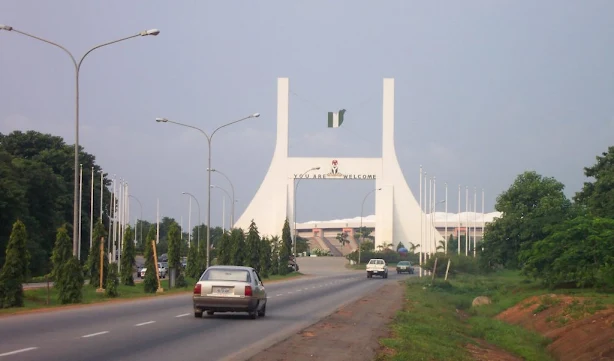Abuja in Focus: Coalition Politics, Urban Renewal, and the Capital's Rising Voice
Abuja, Nigeria As the
political heartbeat of Nigeria, Abuja never sleeps, and this past week was no
exception. From strategic opposition alliances to sweeping economic
conversations, the Federal Capital Territory (FCT) played host to a series of
developments that echo far beyond its skyline.
Power Plays and Political
Reconfigurations
The nation’s capital saw a convergence of heavyweights, Atiku Abubakar, Peter Obi, Nasir El-Rufai, and Rotimi Amaechi, in a meeting that many are calling the start of an “opposition renaissance.” With whispers of a united front to challenge the ruling APC in the 2027 elections, analysts say this “coalition of veterans” could redefine Nigeria’s political map.
Meanwhile,
FCT Minister Nyesom Wike found himself back in the headlines as activist Deji
Adeyanju renewed his criticisms, highlighting the ongoing tension between
governance and civil scrutiny in Abuja.
Constitutional Reform Summit:
Democracy Gets a Makeover
This
week, Abuja hosted over 700 stakeholders for a historic
National Constitutional Summit, where proposals for a new
Nigerian constitution were laid on the table. Led by statesmen like Chief Emeka
Anyaoku and Nobel Laureate Wole Soyinka, discussions touched on restructuring,
resource control, and judicial independence.
“We need
a constitution that reflects the will of the people, not just the interests of
the powerful,” said Soyinka.
This
positions Abuja as not just the administrative capital, but the epicenter of
democratic evolution.
Reimagining African Governance
Abuja
played host to the International Conference on
Africa’s Democracy (ICAD 2025), drawing
leaders like VP Kashim Shettima and Kenya’s Raila Odinga. Topics ranged from
Afrocentric governance models to post-colonial political identity.
Why it matters: Abuja is asserting itself as a
pan-African intellectual hub, exporting ideas as well as hosting them.
Urban Renewal and Infrastructure
Justice
Minister
Wike continued his campaign to transform Abuja’s decaying infrastructure,
revoking criminally used land plots and pushing for improvements in public
services.
In a move
toward equitable development, President Tinubu commissioned new roads in
previously underserved areas like Dakibiyu. And in a strategic partnership, the
FCT administration joined forces with Japan’s JICA to overhaul Abuja’s
45-year-old master plan, setting the stage for smarter housing and
transportation strategies.
Economic Pressures and Prospects
Nationwide
protests shook Abuja’s commercial pulse, forcing business closures and a
revenue nosedive. The Ministry of Trade and Investment estimates losses
exceeding ₦500 billion, sparking renewed debates on how civic expression can
coexist with economic resilience.
Still,
there’s a silver lining. Abuja was selected to host the International Air Show this December, a tourism
and aviation initiative expected to lure investors and global visitors to the
capital.
And
looking ahead, the National Education Loan Fund (NELFUND) announced a job portal launch
by 2026, designed to link student loan recipients with employers, a lifeline for
unemployed youth.
Tech Infrastructure at Risk
Telecom
providers rang the alarm over rising vandalism of digital infrastructure in the
FCT. Industry experts warn this could slow Nigeria’s digital economy and hurt
Abuja’s role as a tech epicenter if not urgently addressed.
Indigenous Rights and Cultural
Justice
Human
rights group CHRICED made a bold statement this week at the UN, demanding
increased protection for Abuja’s original inhabitants. From land rights to
cultural preservation, their advocacy highlights an often-overlooked layer of
development discourse.
Debt Justice and Global
Accountability
In a bold
move, civil society organizations convened in Abuja to call for international debt relief and
reparations. Citing Nigeria’s $97 billion debt burden, activists argued for a
fairer economic system that doesn’t punish developing nations for historic
injustices.
From palace intrigues to grassroots activism, Abuja has once again proven itself to be more than Nigeria's administrative capital, it’s a place where visions clash, ideas converge, and the future is drafted in bold strokes.



No comments:
Post a Comment